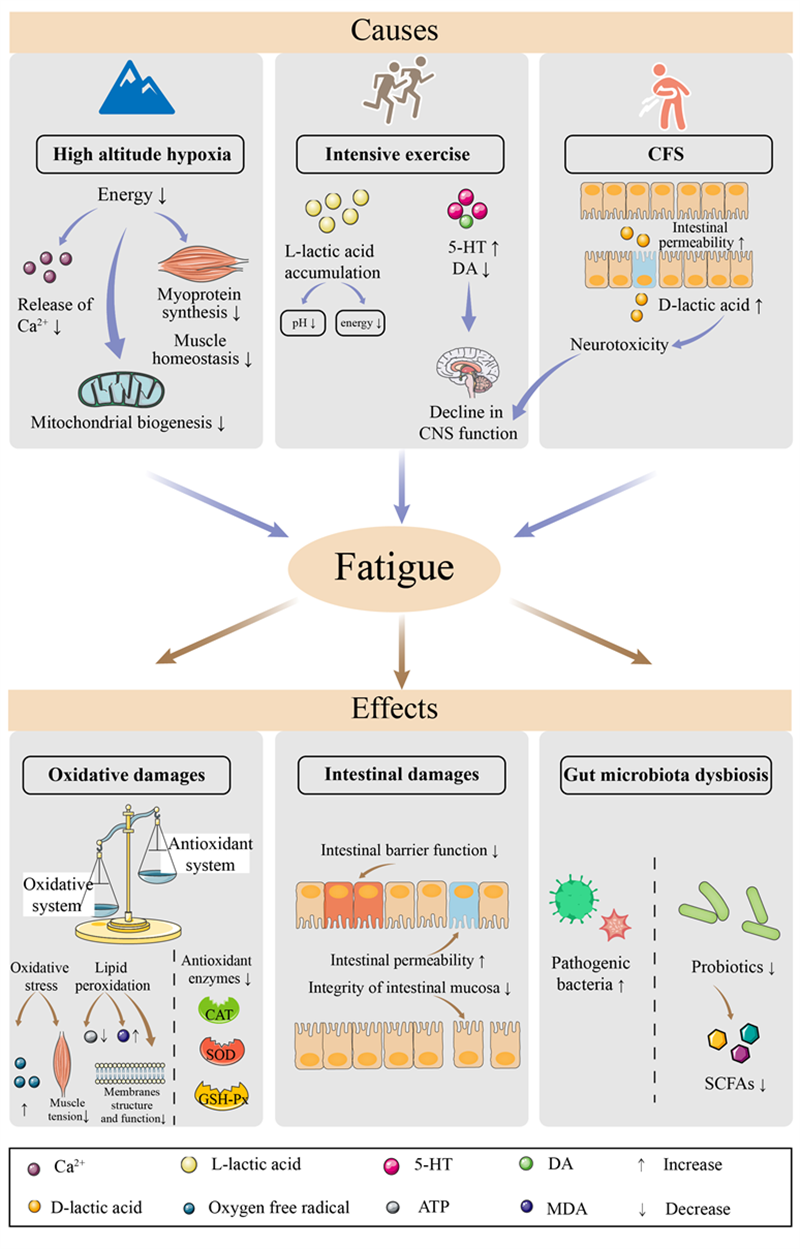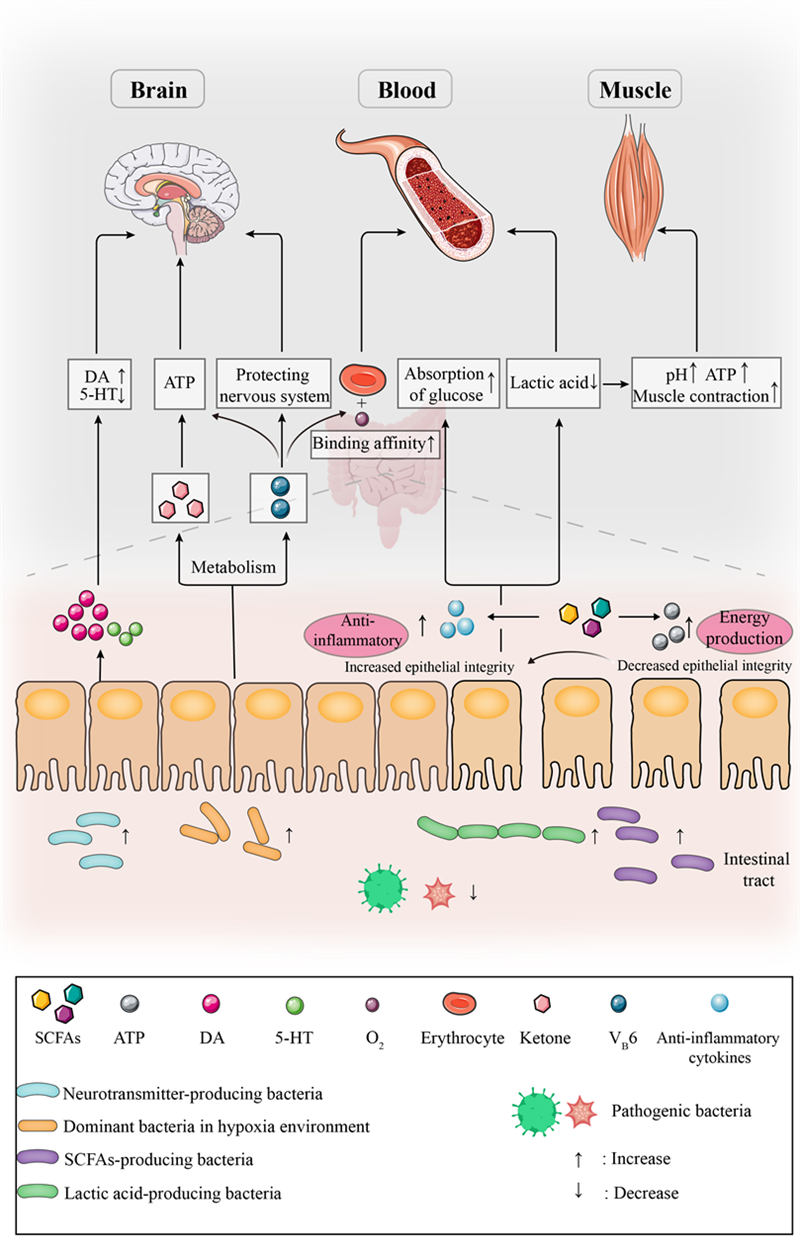Recently, Li Yinghui, a graduate student of the school of Life Sciences, published an article entitledGutMicrobiota as a potential target for developing anti-FattyFoodsinCritical Reviews in Food Science and Nutrition, a top journal in the field of food. This journal ranks fourth in the domain of food, with an annual publication volume of 261 articles. The corresponding author of this article is Professor Shi Junling. Professor Shi’s team mainly focuses on the research on intestinal flora and human health and has carried out a lot of research work in the prevention and treatment of intestinal and metabolic diseases with probiotics, which aims to lay a theoretical foundation for the development of specific probiotic strains with independent intellectual property rights in China.

Fatigue is a common problem in people’s life. The development of anti-fatigue food is of great value to promote human health. Previous studies mostly discussed the anti-fatigue function of food from the perspective of antioxidation. Based on the analysis, comparison and summary of relevant research, this review creatively puts forward that intestinal flora may be the target of anti-fatigue foods. The main contents of this review include: (1) fatigue may increase the number of pathogenic bacteria and reduce beneficial bacteria in human and mouse’s bodies. Besides, intestinal flora will change after eating anti-fatigue food; (2) Among the causes of fatigue, the accumulation of lactic acid, the decrease of calories and the decrease of central nervous system function are related to the intestinal flora metabolism; (3) Among the negative effects of fatigue, oxidative stress, inflammation and gut barrier dysfunction is related to the alteration of intestinal flora; (4) Probiotics and functional nutrients (polysaccharides, polyphenols, etc.) can inhibit the growth of pathogenic bacteria, convert food into antioxidant or anti-inflammatory products, produce short-chain fatty acids, maintain the integrity of intestinal barrier, inhibit intestinal inflammation, and stimulate the production of neurotransmitters that regulate the central nervous system. Therefore, targeted regulation towards intestinal flora can be used as a target for the development of anti-fatigue foods.


(source: School of life sciences)
